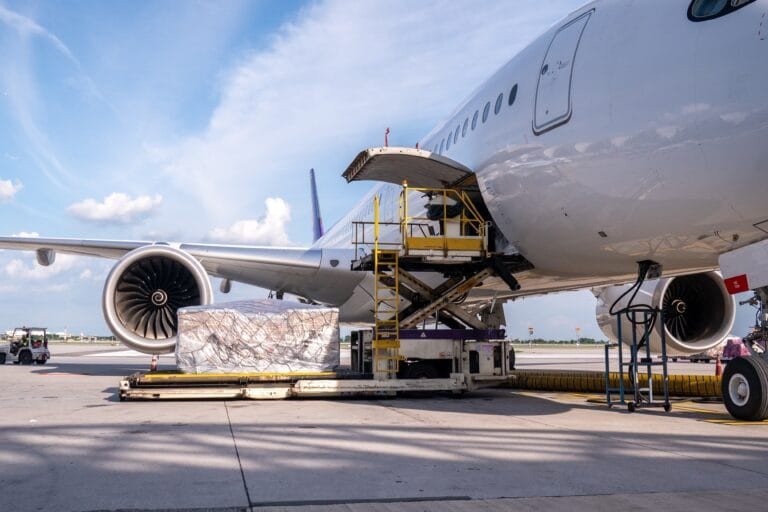We are a nation of, inevitably, overseas traders, so our very livelihoods depend on trading efficiently; any change to the global trading system impacts that efficiency, and as the US is our biggest trading partner it is vitally important that we understand and prepare to deal with any such changes.
The Office for National Statistics (ONS), in its latest analysis of UK/US trade, notes: “President-elect Donald Trump has promised to increase the United States’ tariffs on its international trade. The proposed tariffs would be a tax of between 10 percent and 20 percent on every product imported by the United States, as well as higher tariffs on imports from China, Canada and Mexico.”
But what are the likely real-word effects in the near to medium term, and what if anything could and should we do to cope?
Treasure island
In 2023, the last full year for which there is audited data, the ONS stated that we imported almost £58 billion worth of goods from the US (10 percent of all our imported goods) and exported over £60 billion worth of goods (over 15 percent of all exported goods).
On top of that, the US is the UK’s biggest import and export partner for services (over £57 billion and over £163 billion respectively).
So trade with the US matters – a lot.
But we are of course part of several wider trading networks, not least with the EU and Far East, so US tariff impositions that have impacts on trading blocs and individual countries with whom our trading links are strong, could have further, second-order, impacts on us.
However, those promises and claims (like the best-laid plans) may well founder on the shores of realpolitik.
In reality
Businesses across the world have to deal every day with changing circumstances; the cost of doing business is a permanent concern, especially for the ever-increasing number of businesses that trade globally online. For them, getting their goods to their customers, safely, quickly and cost-effectively, is paramount.
That driving need is underpinned by the global network of airlines, cargo operators, and courier services that handle a vast volume of goods all over the world every day.
In a report from December 2024, prepared for the House of Lords Library, Professor Jonathan Portes, professor of economics and public policy at King’s College London, said that the planned tariff increase would be “a severe shock to the global economy, including the UK”.
The report also quotes The National Institute of Economic and Social Research (NIESR), who claim “the measures would result in halved growth, rising inflation and higher interest rates. NIESR said that the level of impact depends on whether affected countries introduce retaliatory tariffs”.
And finally, it quotes Liam Byrne, Labour MP and chair of the Commons Business and Trade Committee, who described the proposed tariffs being imposed on the UK as a “doomsday scenario”. Byrne argued that the government should seek an exemption from US tariffs by offering to tighten up its inward investment screening programme and introduce tougher export controls.
On the other hand, there are many who believe the impacts will be ameliorated or even non-existent; again from the report, Michael Saunders of Oxford Economics said the UK is not “in the front line of countries” that would be impacted. Chancellor Rachel Reeves has said the UK will be making “strong representations” to the Trump administration, making the case for free trade.
To emphasise the point about second-order impacts, the IMF has cautioned that any trade war between the US and large EU exporters such as Germany would have knock-on effects for the UK economy.
Meanwhile, the think tank Centre for European Reform claims the best way forward is for the UK “will be to actively engage with Trump and keep an eye out for possible mini-deals, but otherwise continue to prioritise deepening relations with the EU”.
So, perhaps inevitably, there are divided opinions and strongly held views – no doubt reflecting vested interests and political leaning.
Out of all this, what might we do to ensure our trading networks continue to function as near normally as possible?
Flight risk
Firstly, we need to remain a reliable trading partner, meaning we need to support our existing global networks by providing that safe, secure, reliable, and efficient cargo transport system.
In practical terms, we must ensure our key infrastructure remains fully operational and working at peak efficiency – whatever happens with tariffs, our partners should know that we can still import and export safely and at speed. Hence, our courier network is key.
To give an example of how significant an airport is to this international system, London’s Heathrow processes almost three quarters of all UK air cargo, with an annual value of well over £200 billion. It is an enormously important part of the UK’s global trading network and a key part of the national infrastructure.
We are generally well-placed to cope with disruptions of this nature, but more importantly those global online business in countries that may be more severely impacted will find ways to ensure their goods are still delivered at reasonable cost – commerce transcends politics, everyone has to make a living, so workarounds will be found that minimise cost increases to the consumer.
In summary, we should be cautiously optimistic.
Our common language doesn’t insulate us from the vagaries of US political shifts, but it does allow us to more easily form those vital close trading relationships with what is still the world’s greatest economic powerhouse.



